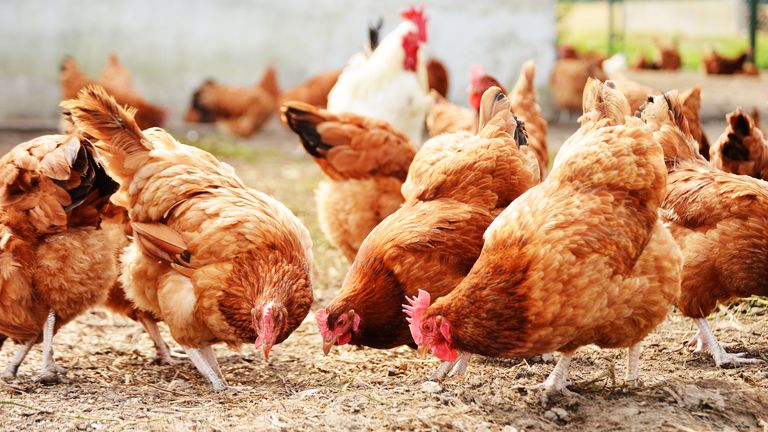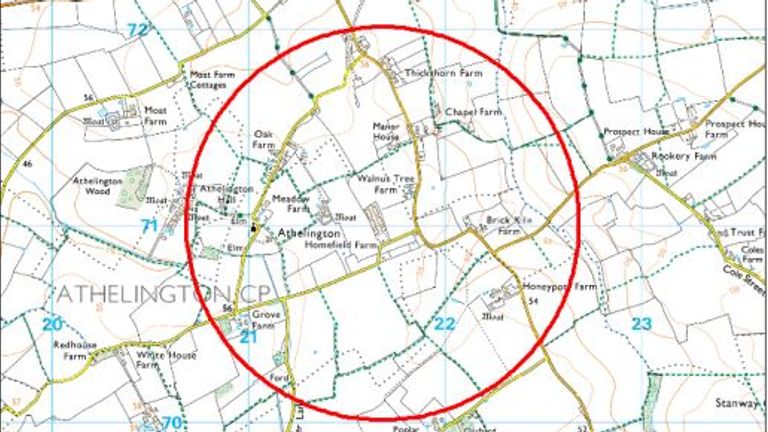27,000 chickens to be culled after bird flu detected on farm in Suffolk
A one kilometre restriction zone has been put in place after a strain was confirmed at a commercial farm near Athelington.
Wednesday 11 December 2019 14:43, UK
All 27,000 chickens at a farm in Suffolk will be culled after a strain of bird flu was detected.
The H5 strain on the commercial farm near Athelington was identified as "low pathogenic avian flu".
The Department for Environment, Food and Rural Affairs (Defra) confirmed the case in mid-Suffolk on Tuesday.
The farm's birds will now be humanely culled and a one kilometre restriction zone around the farm, which covers about seven other farms, has been put in place to limit the risk of the disease spreading.
Public Health England (PHE) said the the risk to public health is "very low".
The Food Standards Agency said bird flu does not pose a food safety risk and thoroughly cooked poultry and poultry products, including eggs, are safe to eat.
An investigation is under way to find the most likely source of the outbreak, Defra said.
Chief veterinary officer Christine Middlemiss said: "Bird keepers should remain alert for any signs of disease, report suspected disease immediately and ensure they are maintaining good biosecurity on their premises.
"We are urgently looking for any evidence of disease spread associated with this strain to control and eliminate it."
Dr Gavin Dabrera, PHE's public health consultant, said: "Avian flu (often called bird flu) is primarily a disease of birds and the risk to the general public's health is very low.
"As a precaution, we are offering public health advice and antivirals to those who had contact with the affected birds, as is standard practice."
LPAI is a less serious strain of H5 avian influenza, which spread across many parts of the globe in 2008 and can infect humans and different types of animals.
The last confirmed case of LPAI in the UK was in Dunfermline in January 2016.





